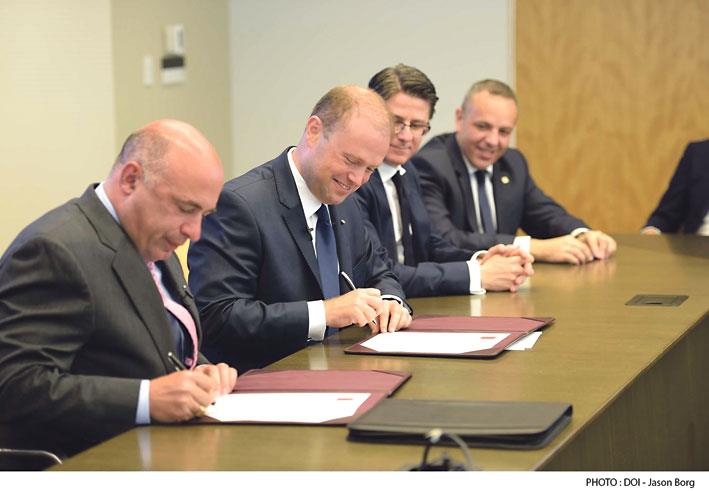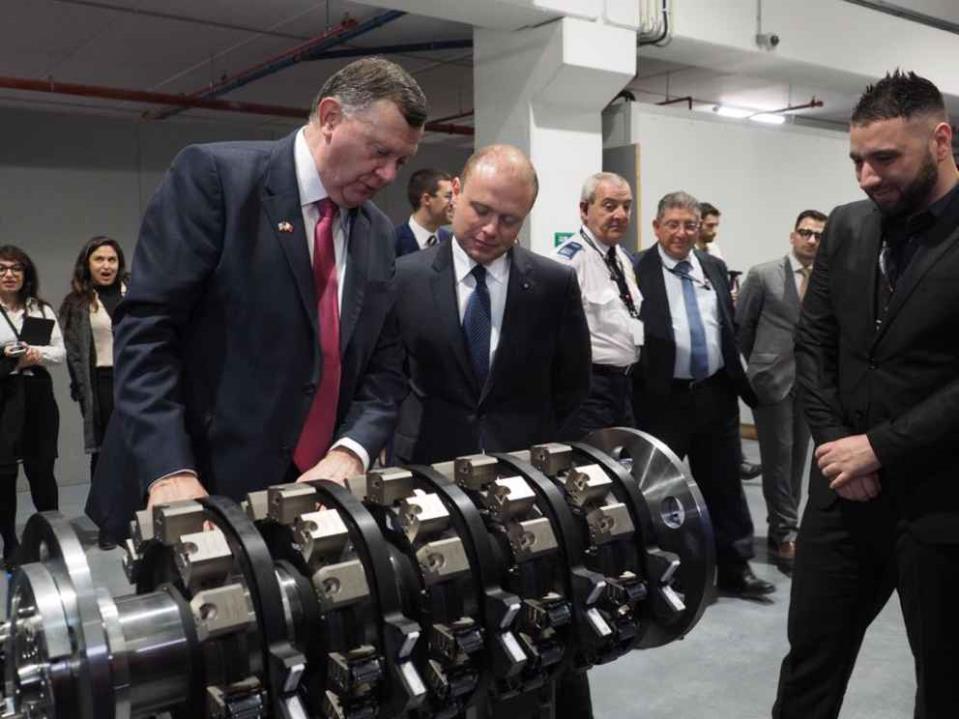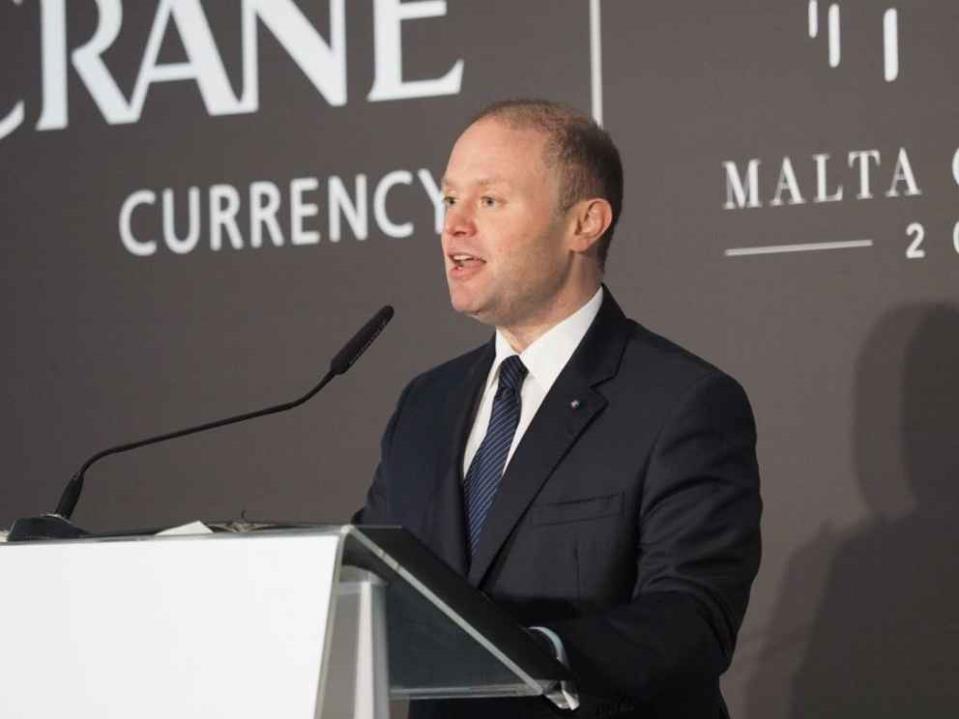In the first acknowledgement that there may be a state aid problem with the government support given to Crane Currency, the European Commission has confirmed it has asked the Maltese government to “prove” that aid given to the company to set up shop in Malta was lawfully granted.
The Commission has also said it is “clarifying the facts with the Maltese authorities in order to assess the legal situation”, suggesting the possibility of future infringement proceedings on the matter.
European Commissioner for Competition Margrethe Vestager this week said: “The Commission is aware of the allegations regarding support measures to attract the US company Crane Currency to invest in Malta.
“Since the first press information in December 2016, as well as in 2017 and 2018, the Commission has been actively investigating the alleged support measures.
“In this context, the Commission invited the Maltese authorities to provide all necessary information to prove that the potential aid was lawfully granted and is currently further clarifying the facts with the Maltese authorities in order to assess the legal situation.”

Back in September 2016 when the deal was signed, Prime Minister Joseph Muscat had said his chief of staff Keith Schembri “was the catalyst in making sure that things get done” insofar as this deal is concerned.
Concerns over a conflict of interest on Schembri’s part were flagged at the time after allegations that his company, the Kasco Group, which he owns, could be the suppliers of millions of euros of printing machinery for the company and he was personally involved in brokering the deal in Boston, along with the Prime Minister, in September 2016.

Schembri at the time had explained that the Kasco Group would not be supplying Crane Currency (photo above shows PM at the launch of the company in Malta) with any machinery for its US$100 million Maltese facility, but the company could carry out servicing for the American currency printing company.
Mr Schembri had confirmed that, “No company in the Kasco Group will be supplying Crane Currency with any machinery. Having knowledge of the industry, I can confirm that currency printing machinery requires strict security features and specifications and therefore such machinery is not acquired through third parties but directly from the manufacturer.”
But Mr Schembri had gone on to explain: “For the sake of completeness, if Crane Currency does ultimately procure machinery from Komori, Kasco Group, being the agents of Komori for the last eight years, and having the necessary know how, may be tasked with the servicing thereof, as has been the case with another company in the currency industry in Malta.”
Prime Minister Joseph Muscat has also said he saw no conflict of interest in having a currency printing company setting up shop in Malta and acquiring its printing machines from a company co-owned by Schembri.
Muscat had insisted that Schembri had not been involved in the negotiations, saying that the discussions had been led by Malta Enterprise. However, on the other hand, Muscat thanked his chief of staff for his role in helping secure the contract.
But not everyone was assuaged by such explanations.

The Nationalist Party, Partit Demokratiku and even former Prime Minister and current Labour MEP Alfred Sant have all questioned the deal and the incentives given to Crane to open up in Malta.
Vestager’s comments this week, in fact, came in reply to questions tabled by a Socialist MEP in the European Parliament.
French S&D MEP Hugues Bayet had asked the European Commission whether it is looking into the possibility that European Union state aid rules were broken when Crane Currency set up shop in Malta.
Bayet observed that the Maltese government and Malta Enterprise have officially refused to provide information on the aid granted to Crane Currency, citing ‘secret and confidential’ reasons.
“Nevertheless, there is information pointing to the fact that, in addition to the incentive measures from which the undertaking has benefitted the government has guaranteed most of its loans.”
The MEP also pointed out that Crane Currency will receive an interest subsidy of up to three per cent on the loan granted by Bank of Valletta.
He also asked whether this state aid is legal under EU competition law, and whether the Commission has taken any initiative to investigate this matter. It now seems that it has.
Back in October, Paul Zahra, chairman of the government-appointed state aid monitoring board, had told Times of Malta in reply to questions on the specifics of the assistance given by the government to Crane Currency that: “As is the norm in any other case, details of the specific assistance is protected by the relevant provisions in the Malta Enterprise Act and the Business Promotion Act.”
It was postulated, however, that Maltese taxpayers would fork out around €81 million of the €100 million investment, through different forms of state aid.

The newspaper had reported at the time that in addition to financing the €27 million printing facility on public land in Hal Far, Malta Enterprise also agreed to guarantee 75 per cent of a €71 million loan (equivalent to €54 million) given to Crane Currency by Bank of Valletta to purchase equipment and finance installation.
Another subsidy of up to three per cent on interest payable by the company on its local bank loans, as mentioned by the MEP, was another problematic issue.
According to Malta Enterprise, Crane is expected to employ some 300 workers in its first years of operation and will be contributing to the Maltese economy through the purchase of raw printing material and equipment through local agents, areas in which the Kasco Group operates.
Writing in The Malta Independent last December, Sant said that although he had not had reservations when the deal was first announced, recent developments, including the sale of the company for US$800 million in the meantime, “gives rise to reservations”.
He had said that his reservations were not related to the sale of the American company itself but to the explanation given: “We have been told that the sale was so attractive to the company that took Crane over because the deal the latter had finalised in Malta actually drove its real value to a much higher level than that shown in its audited financial accounts.”
Sant asked "what was going on?"
“In order to promote new industries in Malta as a member of the EU, shall we need to extend ‘subsidies’ to foreign investment that are way too high?”